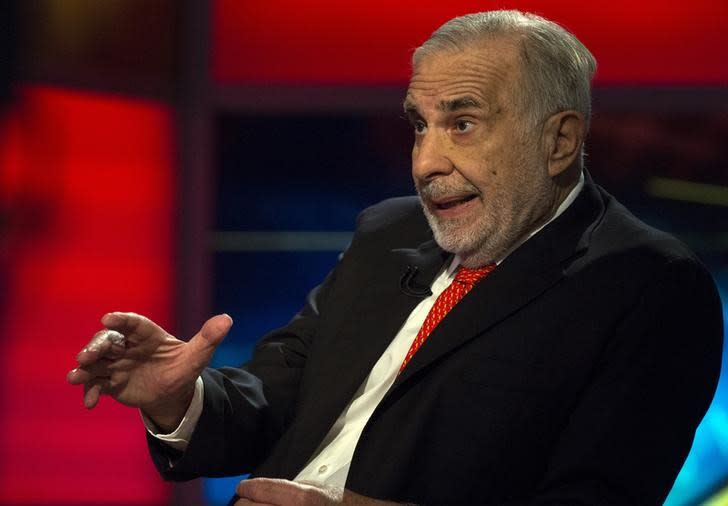Icahn subpoenaed by U.S. on biofuels dealing - filing

By Chris Prentice and Jarrett Renshaw
NEW YORK (Reuters) - Billionaire investor Carl Icahn has been subpoenaed by the U.S. Justice Department over his efforts to overhaul the U.S. biofuels program during his time as an unpaid adviser to President Donald Trump, his company revealed in Securities and Exchange Commission filings.
Icahn's dual role as a presidential adviser and an investor with interests in multiple industries raised eyebrows earlier this year with Democratic lawmakers and government watchdogs.
The U.S. Attorney's Office for the Southern District of New York subpoenaed Icahn and his firm Icahn Enterprises L.P. (IEP.O) for information on its activities around the U.S. Renewable Fuel Standard, Icahn Enterprises said in an SEC filing on Nov. 3.
Icahn is a majority owner in a refining company, CVR Energy (CVI.N), directly affected by U.S. biofuels regulations.
"We are cooperating with the request and are providing information in response to the subpoena. The U.S. Attorney’s Office has not made any claims or allegations against us or Mr. Icahn," the company said in the filing.
A spokeswoman for Acting U.S. Attorney Joon Kim in Manhattan declined to comment. Icahn's attorney did not respond to requests for comment.
The U.S. Renewable Fuels Standard requires oil refiners to blend increasing volumes of ethanol and other biofuels into the nation's fuel supplies, or purchase credits from those who do. It was introduced by former President George W. Bush more than a decade ago as a way to reduce U.S. energy imports, help U.S. farmers, and slash greenhouse gas emissions.
The regulation has helped corn growers, but it has been a burden for Icahn and other independent oil refiners who claim it costs them hundreds of millions of dollars per year.
As an adviser to Trump, Icahn had presented a proposal to the White House in February that the Renewable Fuel Standard be altered to lift responsibility for blending fuels off of refiners, and moved further down the supply chain to supply terminals.
After an uproar over the proposal, Icahn resigned his post as adviser in August. In his resignation letter, Icahn downplayed his role, saying: "I never had access to nonpublic information or profited from my position."
The EPA has said it does not currently believe shifting the blending responsibility off refiners is appropriate.
While Icahn was pushing for the change, his refining company CVR Energy built up a large short position in the obscure biofuel blending credit market, which was worth around $280 million at the end of June.
The changes Icahn promoted would have tanked prices for the credits, resulting in massive profits for CVR.
The company significantly reduced its short position in the past quarter, according to filings.
Renewable fuel credits are now trading at about 95 cents each, three times their lows hit this winter as Icahn lobbied for changes to the biofuel program.
Watchdog groups like Public Citizen and American Oversight applauded the move, saying that Icahn's role presented ethical and legal concerns.
"It's critical that prosecutors get to the bottom of Icahn's involvement in the administration and uncover why, and how, he was given so much access despite the obvious ethical concerns," said Austin Evers, head of the watchdog group American Oversight.
(Reporting by Chris Prentice and Jonathan Stempel; editing by David Gregorio)

 Yahoo Finance
Yahoo Finance 